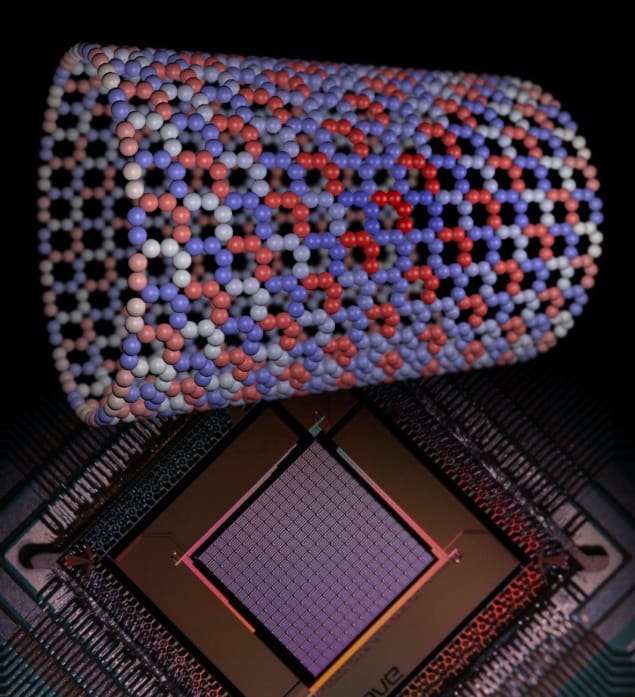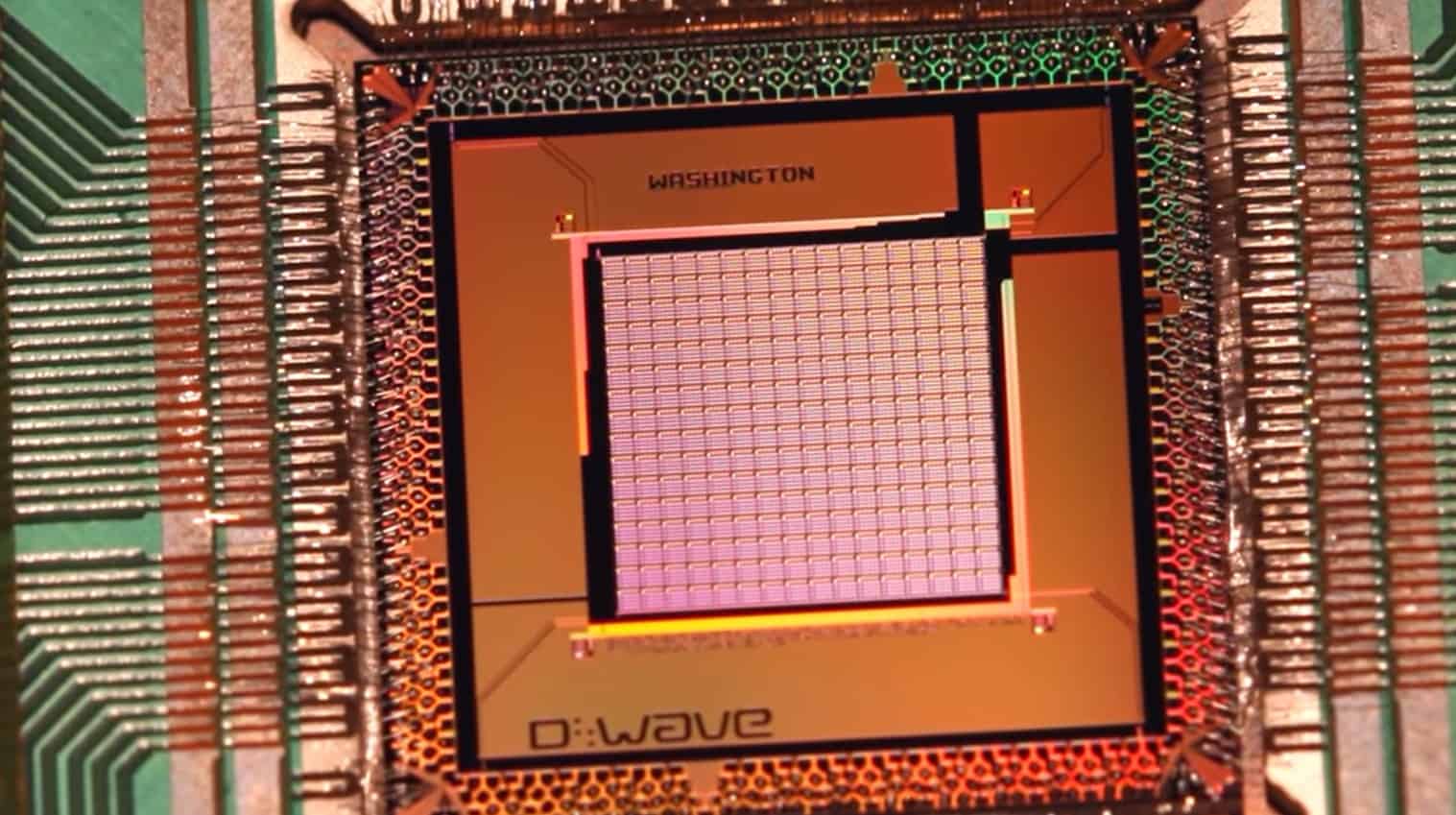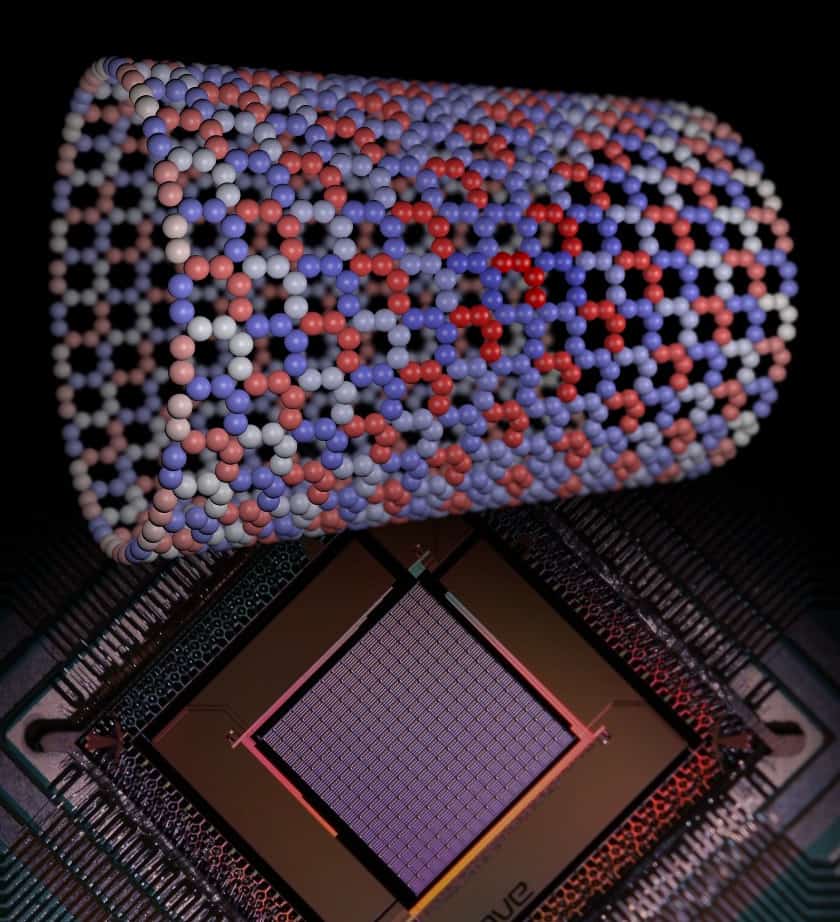 D-Wave Systems have shown that their quantum processor can simulate the behaviour of an “untwisting” quantum magnet much faster than a classical machine. Led by D-Wave’s director of performance research Andrew King, the team used the new low-noise quantum processor to show that the quantum speed-up increases for harder simulations. The result shows that even near-term quantum simulators could have a significant advantage over classical methods for practical problems such as designing new materials.
D-Wave Systems have shown that their quantum processor can simulate the behaviour of an “untwisting” quantum magnet much faster than a classical machine. Led by D-Wave’s director of performance research Andrew King, the team used the new low-noise quantum processor to show that the quantum speed-up increases for harder simulations. The result shows that even near-term quantum simulators could have a significant advantage over classical methods for practical problems such as designing new materials.
The D-Wave simulators are specialized quantum computers known as quantum annealers. To perform a simulation, the quantum bits, or qubits, in the annealer are initialized in a classical ground state and allowed to interact and evolve under conditions programmed to mimic a particular system. The final state of the qubits is then measured to reveal the desired information.
King explains that the quantum magnet they simulated experiences both quantum fluctuations (which lead to entanglement and tunnelling) and thermal fluctuations. These competing effects create exotic topological phase transitions in materials, which were the subject of the 2016 Nobel Prize in Physics.
The researchers used up to 1440 qubits to simulate their quantum magnet. In a study published in Nature Communications, they report that the quantum simulations were over three million times faster than the corresponding classical simulations based on quantum Monte Carlo algorithms.
Importantly, the experiment also showed that the speed of quantum simulations scaled better with the difficulty of the problem than the classical ones did. The quantum speed-up over classical methods was greater when the researchers simulated colder systems with larger quantum effects. The speed-up also increased when they simulated larger systems. Hence the quantum speed-ups are greatest for the hardest simulations, which can take classical algorithms extremely long times.
Advantage with a twist
The D-Wave team performed a similar quantum magnet simulation in 2018, but it was too fast to take accurate measurements of the system’s dynamics. To slow down the simulation, the researchers added a so-called topological obstruction to the quantum magnet – essentially, a “twist” in the magnet that takes time to unravel. Together with a new low-noise quantum processor, this addition enabled them to accurately measure the system’s dynamics.

A guided tour inside D-Wave’s iconic black box
“Topological obstructions can trap classical simulations that use quantum Monte Carlo algorithms, while a quantum annealer can circumvent the obstructions via tunnelling,” explains Daniel Lidar, who directs the Center for Quantum Information Science and Technology at the University of Southern California, US, and was not involved with the research. “This work has demonstrated a speed-up arising from this phenomenon, which is the first such demonstration of its kind. The result is very interesting and shows that quantum annealing is promising as a quantum simulation tool.”
In contrast with previous simulations comparing quantum and classical algorithms, King’s experiment directly relates to a useful problem. Quantum magnets are already being investigated for their potential applications in creating new materials. Quantum speed-ups could rapidly accelerate this research; however, the D-Wave team does not rule out the possibility of developing faster classical algorithms than those currently used. The team ultimately sees the most promising upcoming applications of quantum simulations to be a hybrid of quantum and classical methods. “This is where we expect to find near-term value for customers,” King says.
